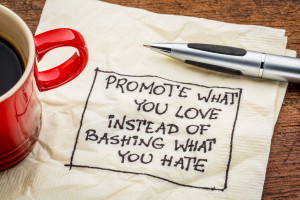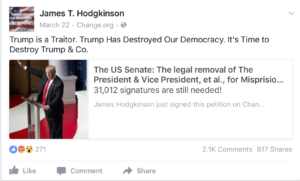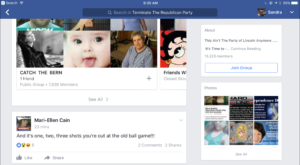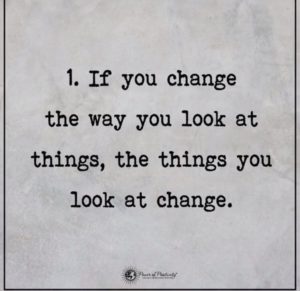
We’re all in this together
The violence in Illinois this morning, when Republican majority whip Steve Scalise was one of five people shot as they practiced for a Republican vs Democrat charity event that will take place this Sunday, was inevitable. It’s the natural outcome of our insistence of defining who’s “us” vs. who’s “them.” We need to remember we’re all “us.”
My thoughts and prayers go out to Congressman Steve Scalise‘s family; Zachary Barth and his family; Matt Mika and his family; Special Agent David Bailey and Special Agent Crystal Griner, along with all others affected by today’s shooting. The shooting was apparently motivated by political antipathy. Reports say the gunman asked if those practicing were Republicans or Democrats before opening fire.
It’s not us vs them: it’s unity vs division, progress vs regression, overall gain vs overall loss
We’re buying into a false narrative when it comes to our choices. The division is not rich vs poor; black vs white; men vs women; LGBTQ vs straight; Republican vs Democrat; Christian vs Muslim; or gun owners vs gun control advocates – though there are those in each group who would make it so. The real contest is between anger and logic. Peace and violence. Self-centeredness vs open-mindedness. Unity and connection vs division and indifference. Thoughtless heckling vs useful problem-solving. Openness vs sneakiness (because if you don’t discuss your ideas in the open, you cannot hear opposing views that may challenge and enrich or even change those beliefs.)

If you flame people online, you’re encouraging the dysfunction
The kind of overheated, exaggerated rhetoric found in James T. Hodgkinson’s social media needs to end. Vicious online personal attacks have become the norm. Many of my friends – people I love and respect – regularly say things on Facebook and Twitter I know they would not say in person. That’s not political activism – it’s the online equivalent of a middle school slam book.

Don’t assume everyone who reads your posts is as balanced as you are
The real choice is always between love or hate. The worst – and easiest – choice is corrosive indifference. If someone doesn’t matter to you, you may more easily opt to call them names online, revile their intelligence, reject their beliefs, diminish their humanity, and, eventually, be indifferent to their fate.
People who are unbalanced for whatever reason may hear this rhetoric differently than the rest of us. You and I hear snark. They hear a call to action. They do not have the same boundaries. People get hurt.
Perhaps victims are “only” shamed and vilified online. What’s the harm in mockery, a meme, a rumor, a misrepresentation that is repeated over and over? Their reputations may be damaged, but hey – it’s legal so it must be moral. Everybody else does it. Except we don’t. Plus,the blame-and-shame mindset, along with the idea that one person’s immaturity makes mine okay, should be discarded by the end of elementary school. In extreme cases like today, people are physically harmed.
Time to move forward
Let’s stop this. It is purposeless to gin up strangers’ anger, to rally people around personal attacks and accusations, to ratchet up the emotional volatility. We have to stop the drama and come together. It’s a lot more boring to intentionally decide to respect each other and have occasionally tough discussions from a basis of mutual respect, but let’s do it anyway. We have to commit to discuss issues, not people. We have to pressure our news outlets to simply report the issues and quit making politics so personal.
Deterrence
So, how do we stop similar future occurrences? First, we have to detox the environment that allows the hate to thrive. In order to do that, we need to ratchet down our political antipathy toward each other. Republicans and Democrats need to work together, find common ground, and quit tearing each other apart. Elections, local to national, need to quit being so viscerally personal. Otherwise, we will not ever get a diverse pool of qualified and motivated candidates – who wants to run for public office only to be vilified and possibly have their lives genuinely threatened?
Some genuine geniuses undoubtedly voted for Trump. Some voted for Hillary. Some voted for Bernie. Time to find points of agreement.
We start by leaning toward each other, rather than draw further away. Though this may be obvious, here’s some truthiness for you. People who voted for President Trump are not a monolithic bunch of racist, homophobic, sexist misanthropes. They had a wide variety of valid reasons for voting for him. Likewise, people who voted for Hillary Clinton are not all ignorant, arrogant “feminazi” liars. They thought she was the best and most experienced candidate for the job. Nor is every Bernie Sanders supporter a “commie” or a “snowflake.” They saw him as the best candidate to lead the change they wanted. There are areas where we each agree. We have to talk to each other and find that common ground, then move from there to work on the areas where we disagree.
Five ideas for personal change
- Talk more about what we each support, less on what we are against. It is easy but not that useful to protest the status quo. It is very difficult but infinitely more useful and lasting to work to enact meaningful change.
- Focus on making the changes we can. It’s easy to bemoan things that are beyond my control. It’s harder to commit to work to make things better than I know I can affect.
- Personally commit to discuss issues, not people, especially online.
- Pressure our news outlets to simply report the issues and quit making politics so personal. Post requests on their Facebook pages. tweet to them. Less editorializing, more unbiased news, please.
- Ultimately, define each problem statement – poverty, violence, mental health, health care, terrorism – and find common ground on solutions rather than deliberately moving further apart.

1. Define and agree on the problem before insisting there’s only one possible solution. 2. Problem solve rather than self-promote.
Today, many in the Twitterverse did not stop to mourn but immediately started debating gun control. “If the Sandy Hook massacre had been GOP congressmen instead of children at school, we’d have had #GunControl a long time ago.” versus “Today, good guys with guns bravely prevented a mass political assassination. Let that be your only take away from the events today.”
Instead of moving immediately to a solution that we may assume is best for all based on our individual experience, let’s define the problem we want to solve. Neither of those posters wanted this guy to shoot those people. They could find common ground on how to prevent future incidents if their goal was to do that rather than to score points with like-minded people.
A final prayer
Last, my thoughts and prayers also go out to James Hodgkinson’s loved ones. I just saw a gentleman on television who was his childhood friend, who said he was a nice guy, and that he did not think was capable of such an act. It’s much easier for the rest of us to revile the sinner than the sin, because then we can hope the sin dies with the twisted, unknown individual. But the hate that infected James “Tommy” Hodgkinson lives on and continues to corrupt. We have to each decide to actively discourage the environment that encourages it to fester. We have the choice to be so much better than this.